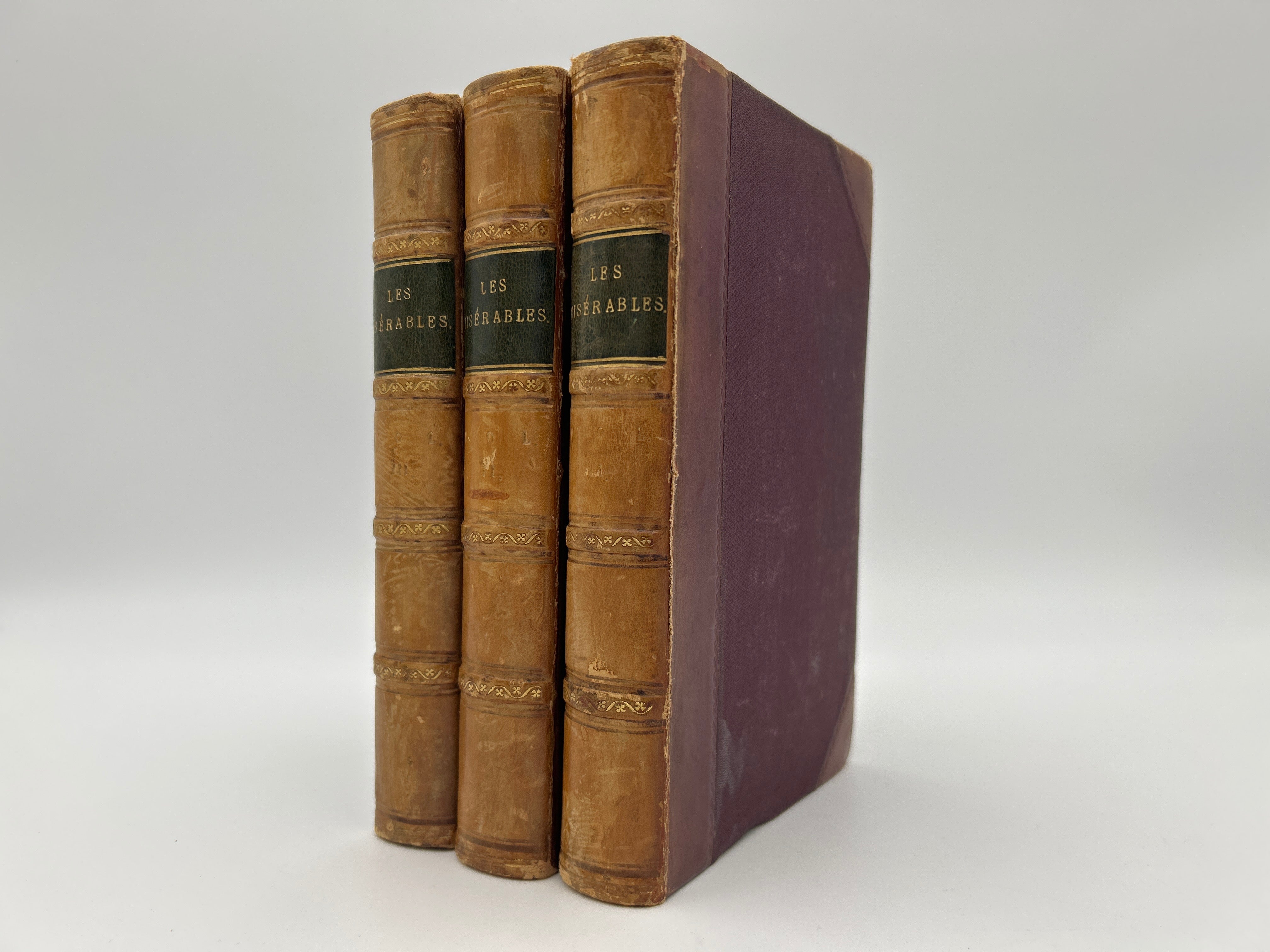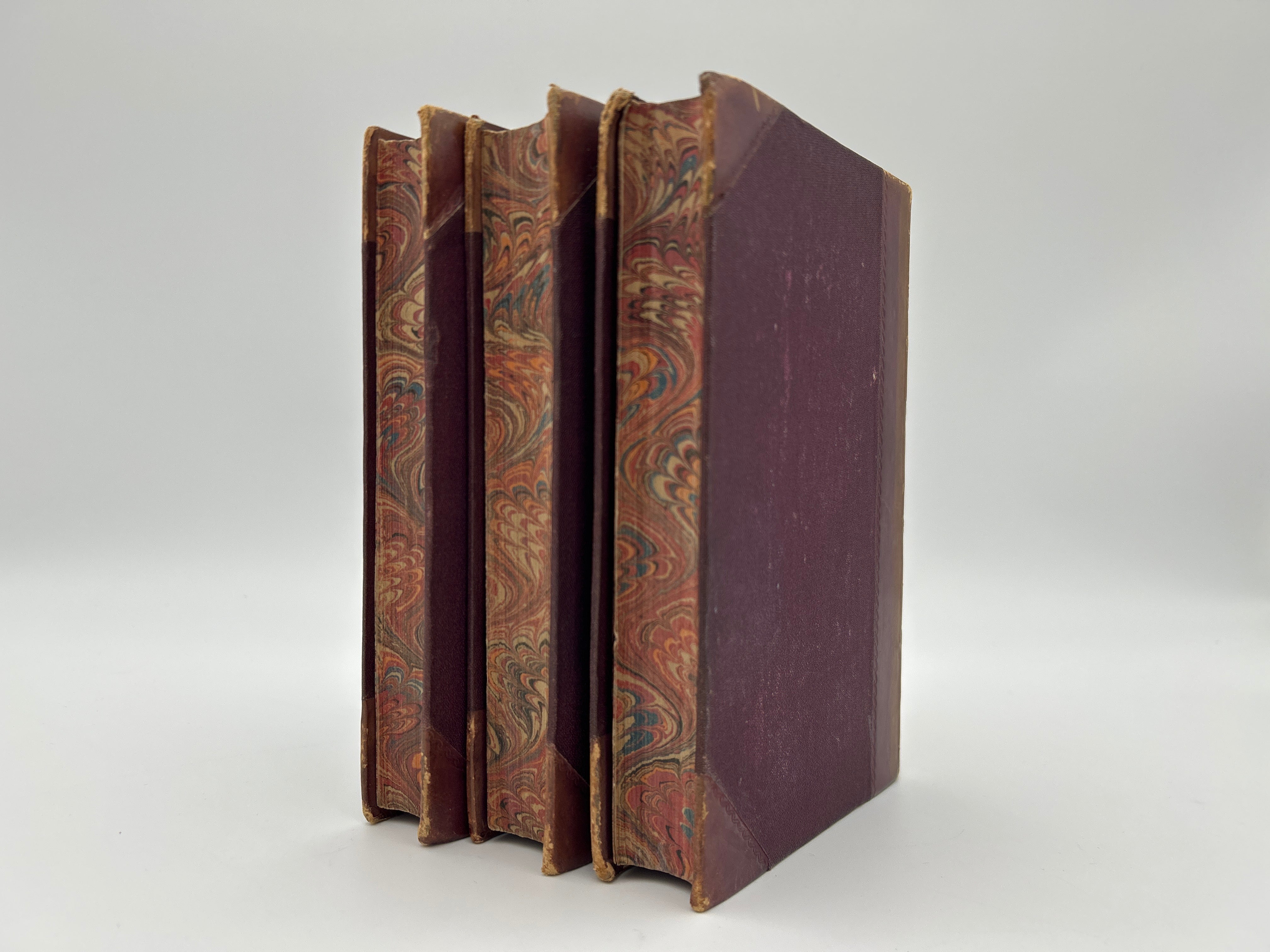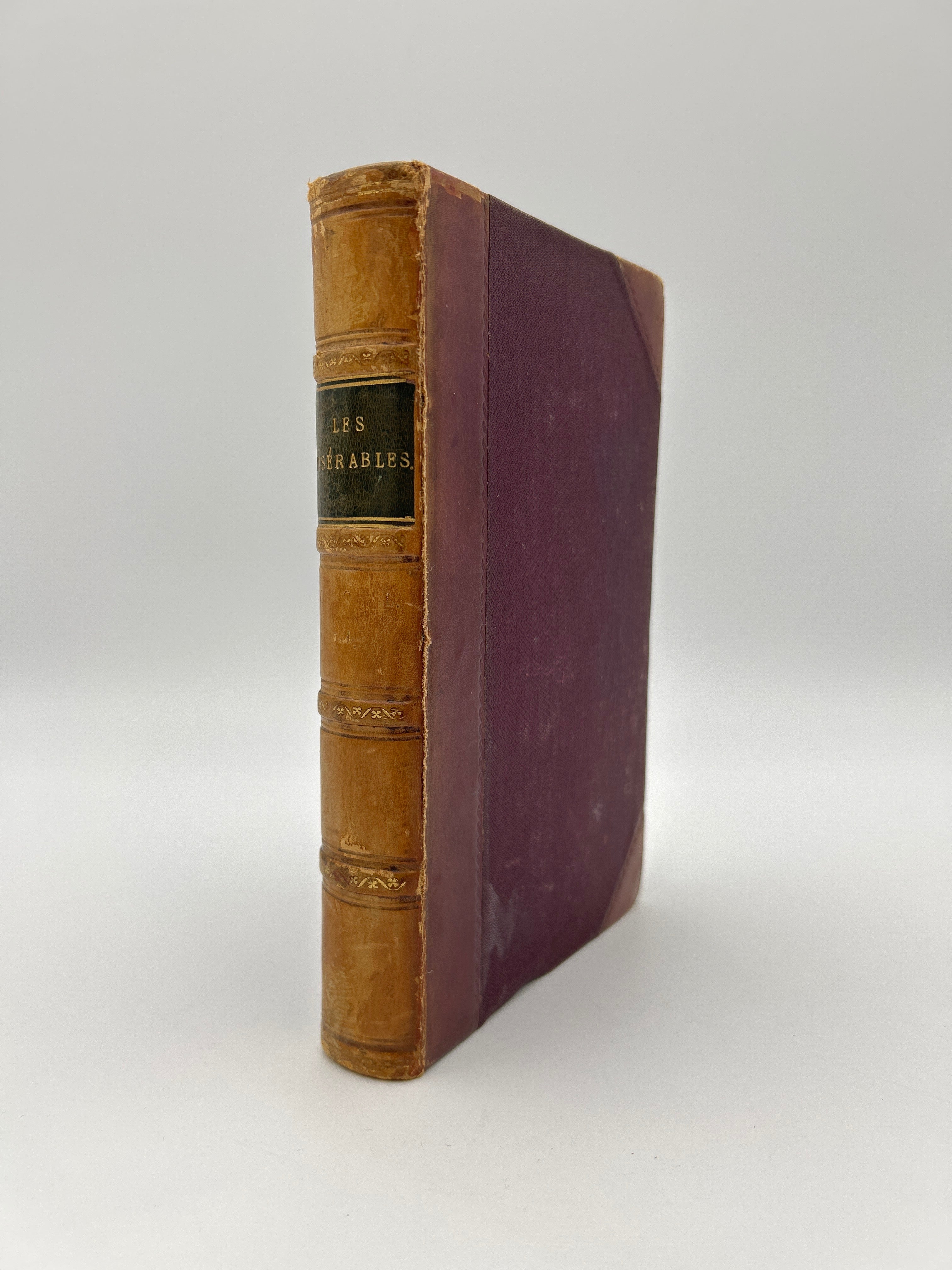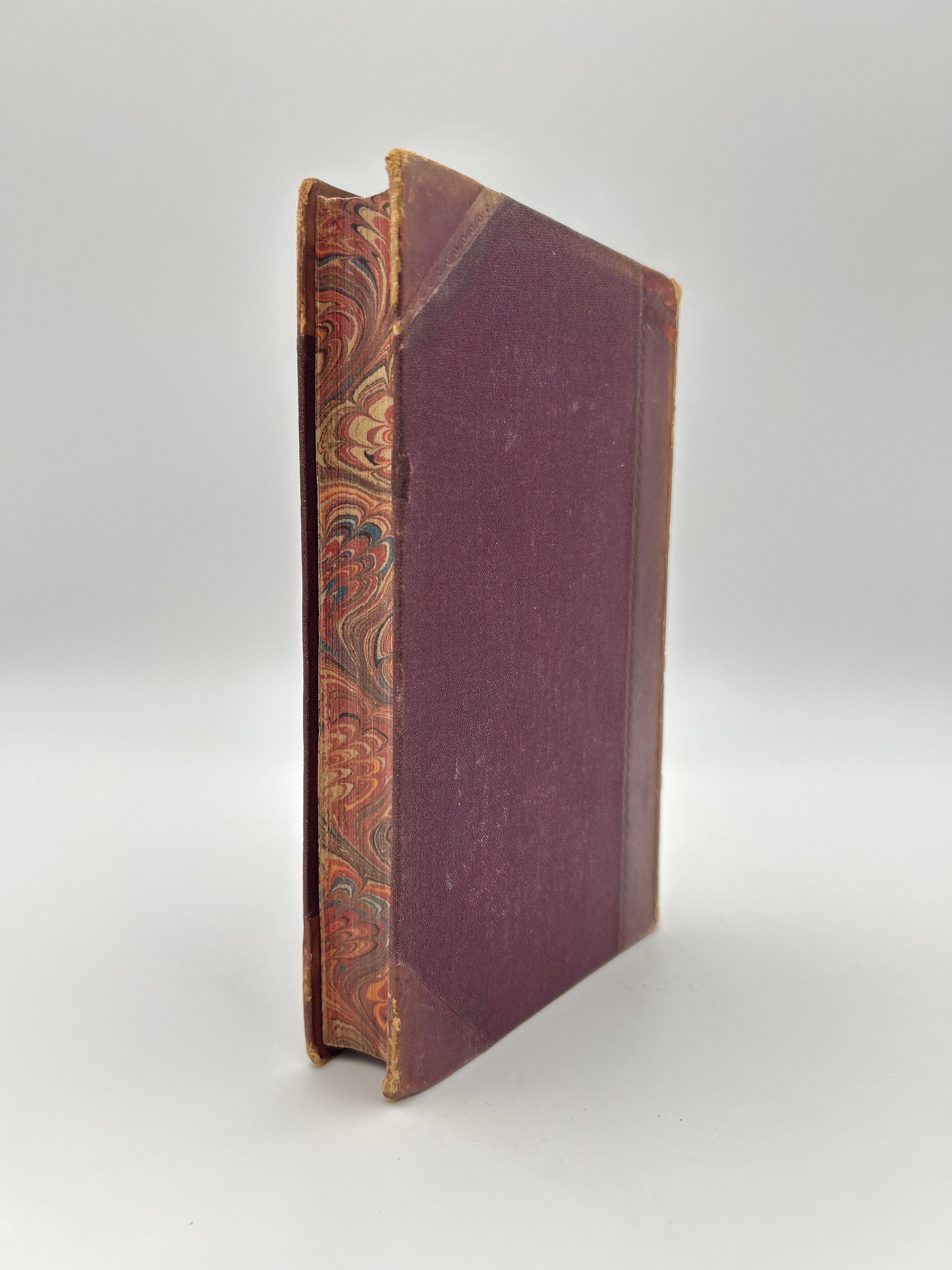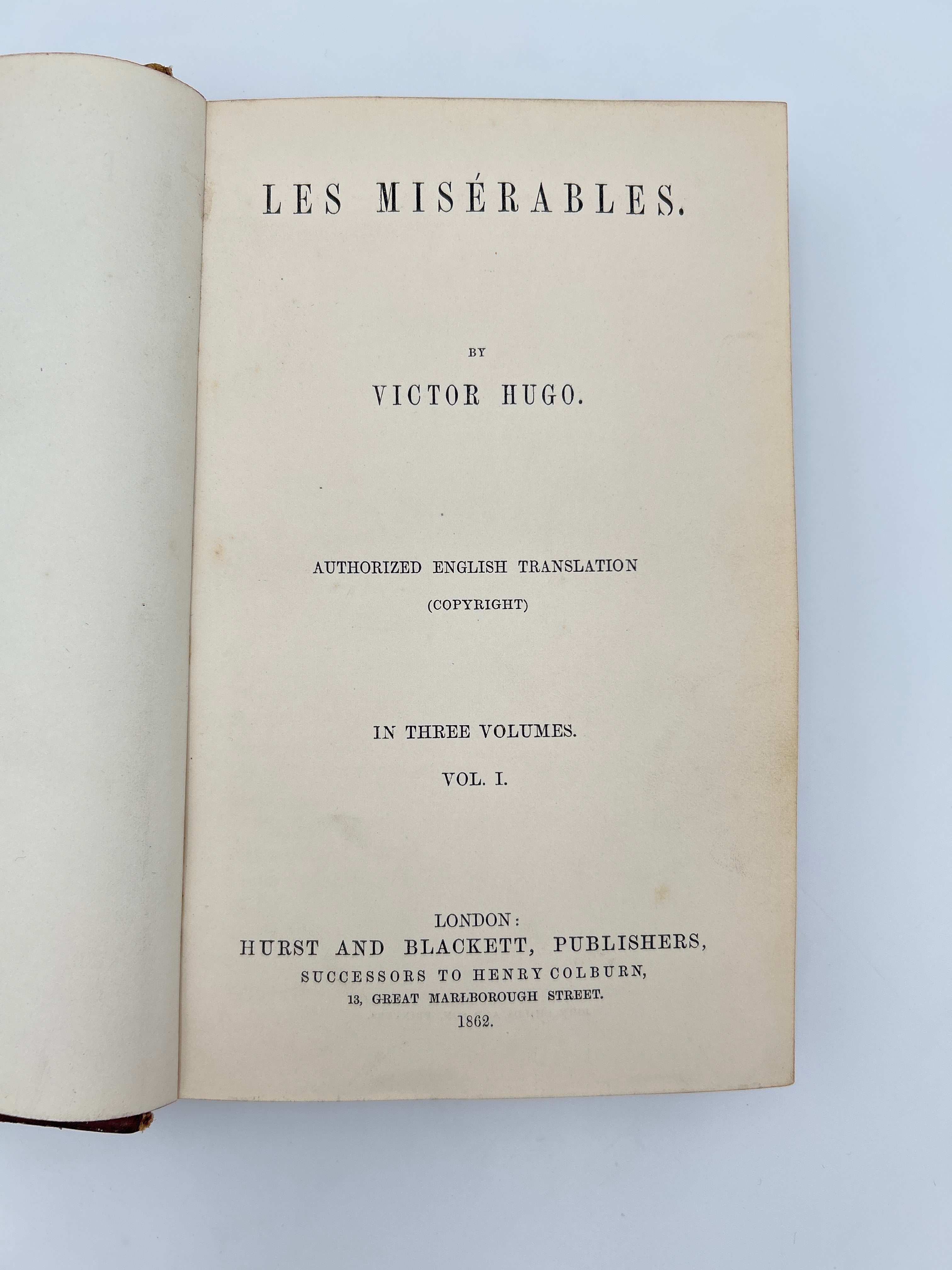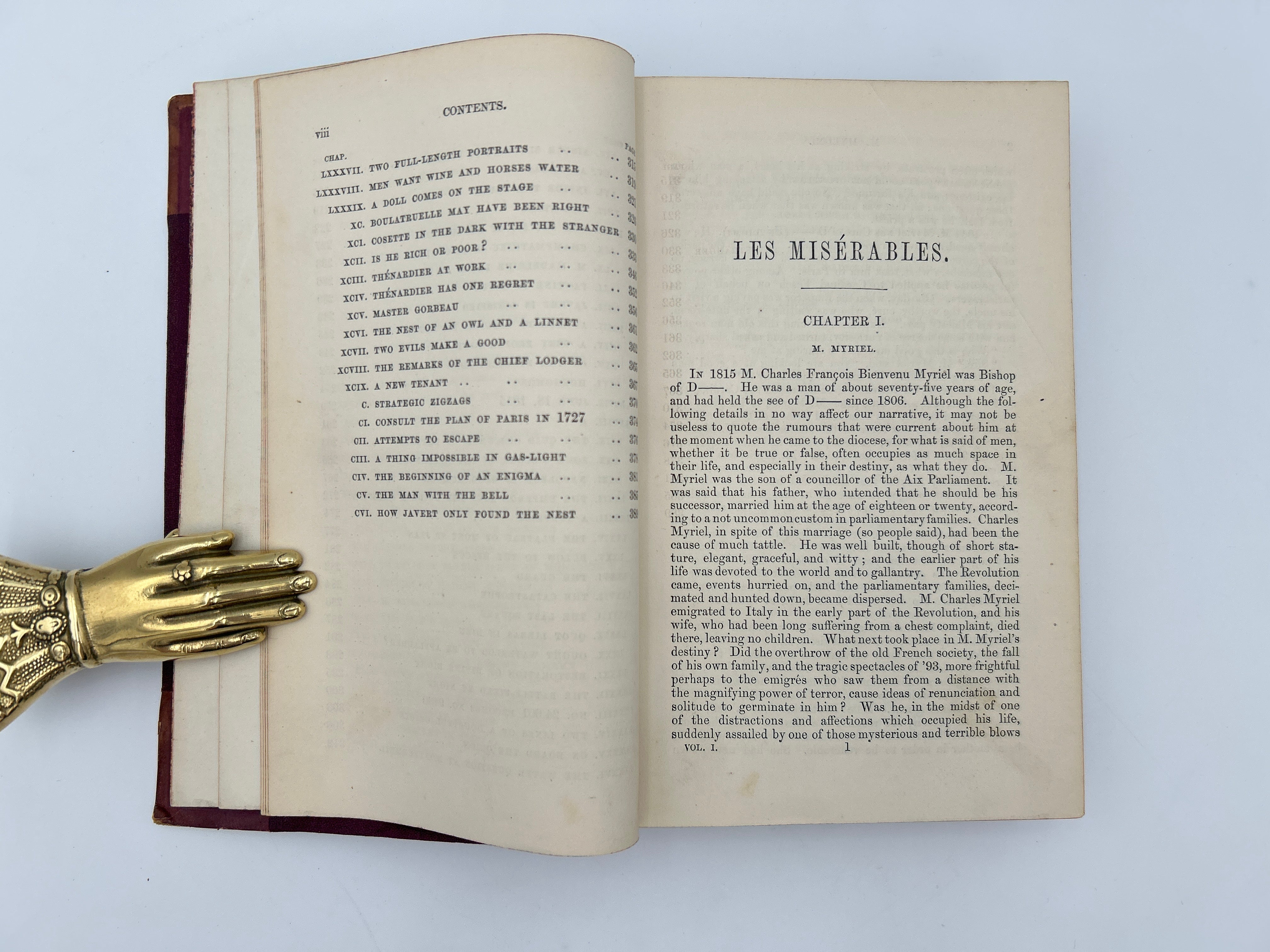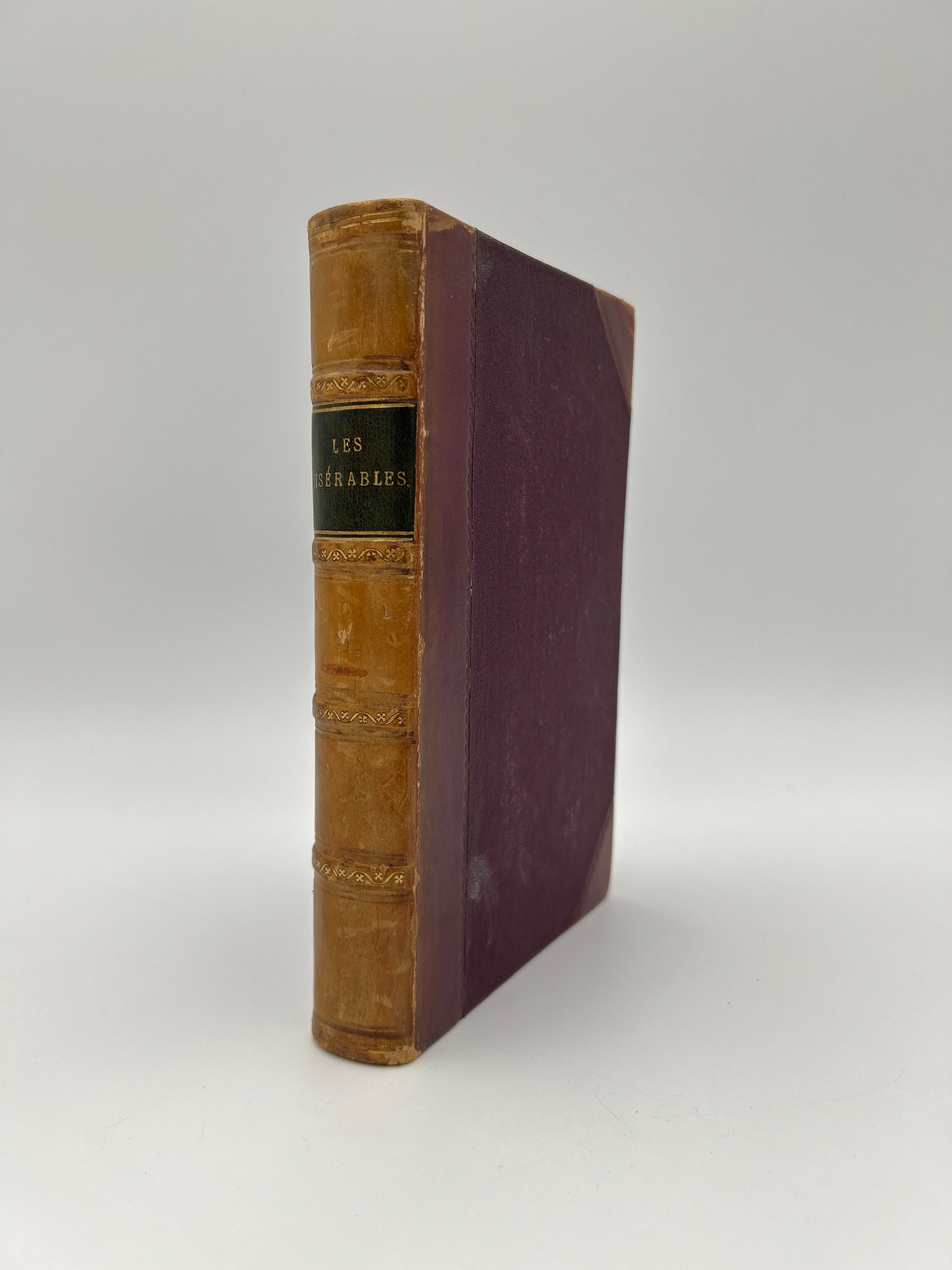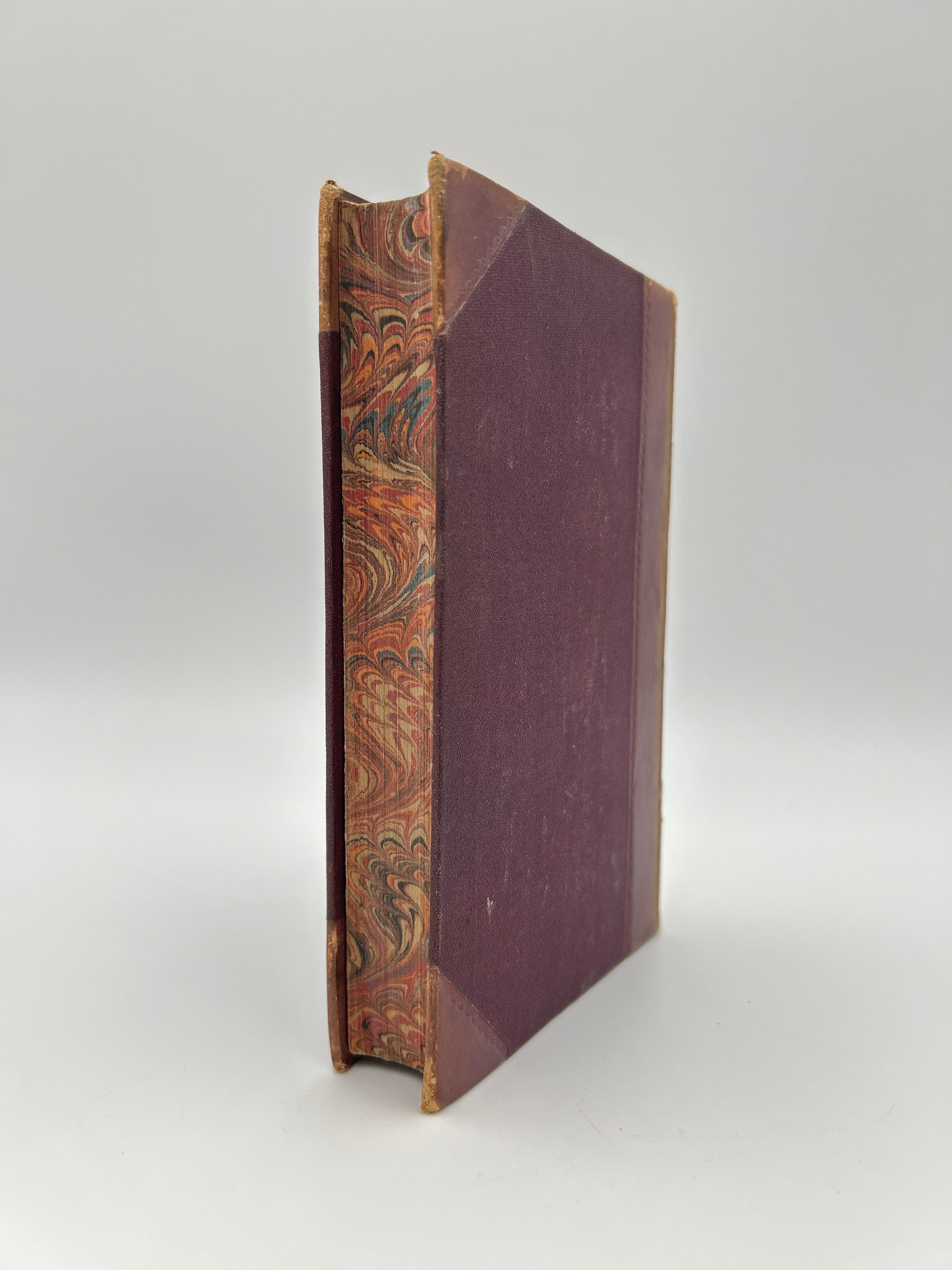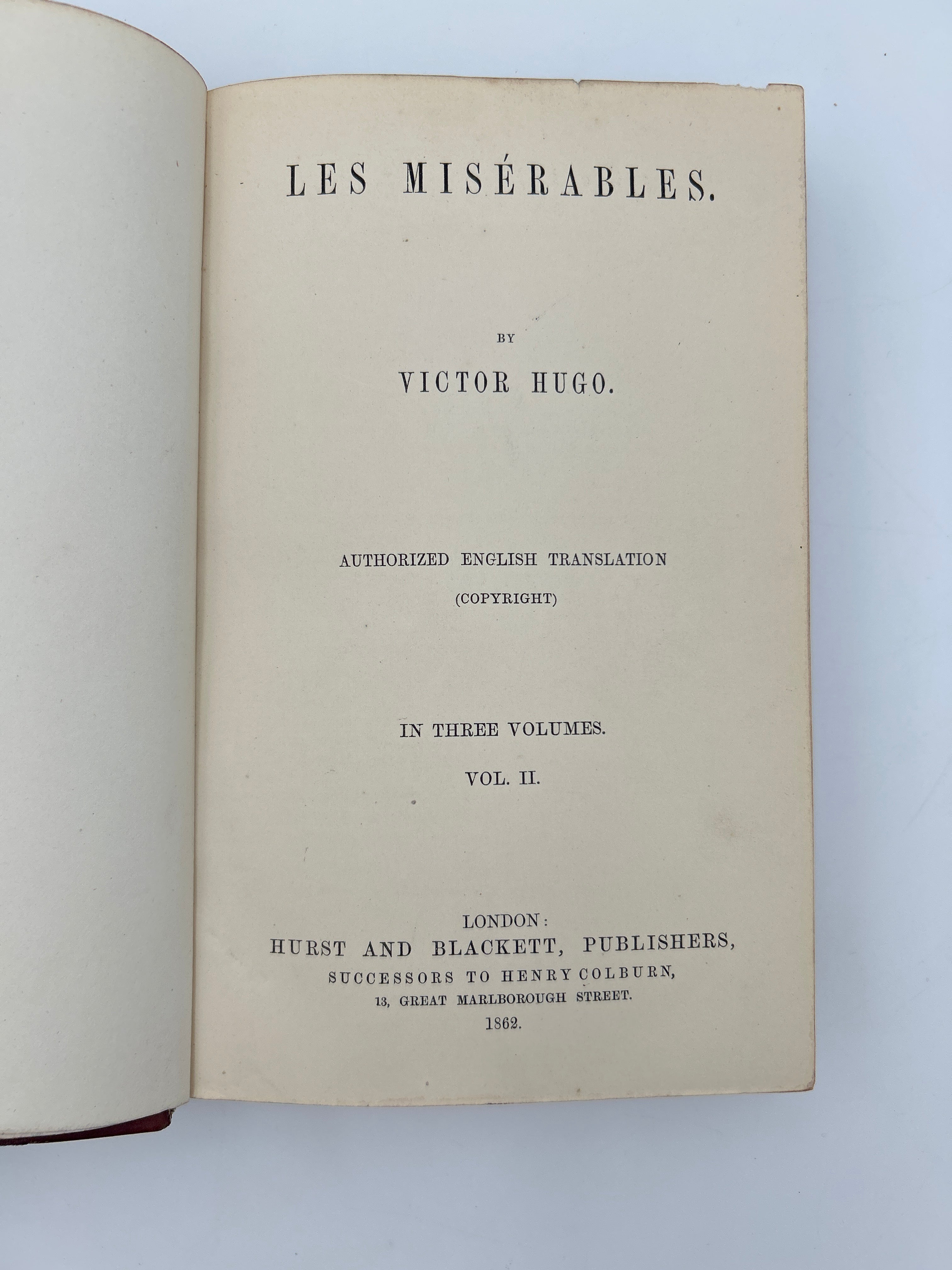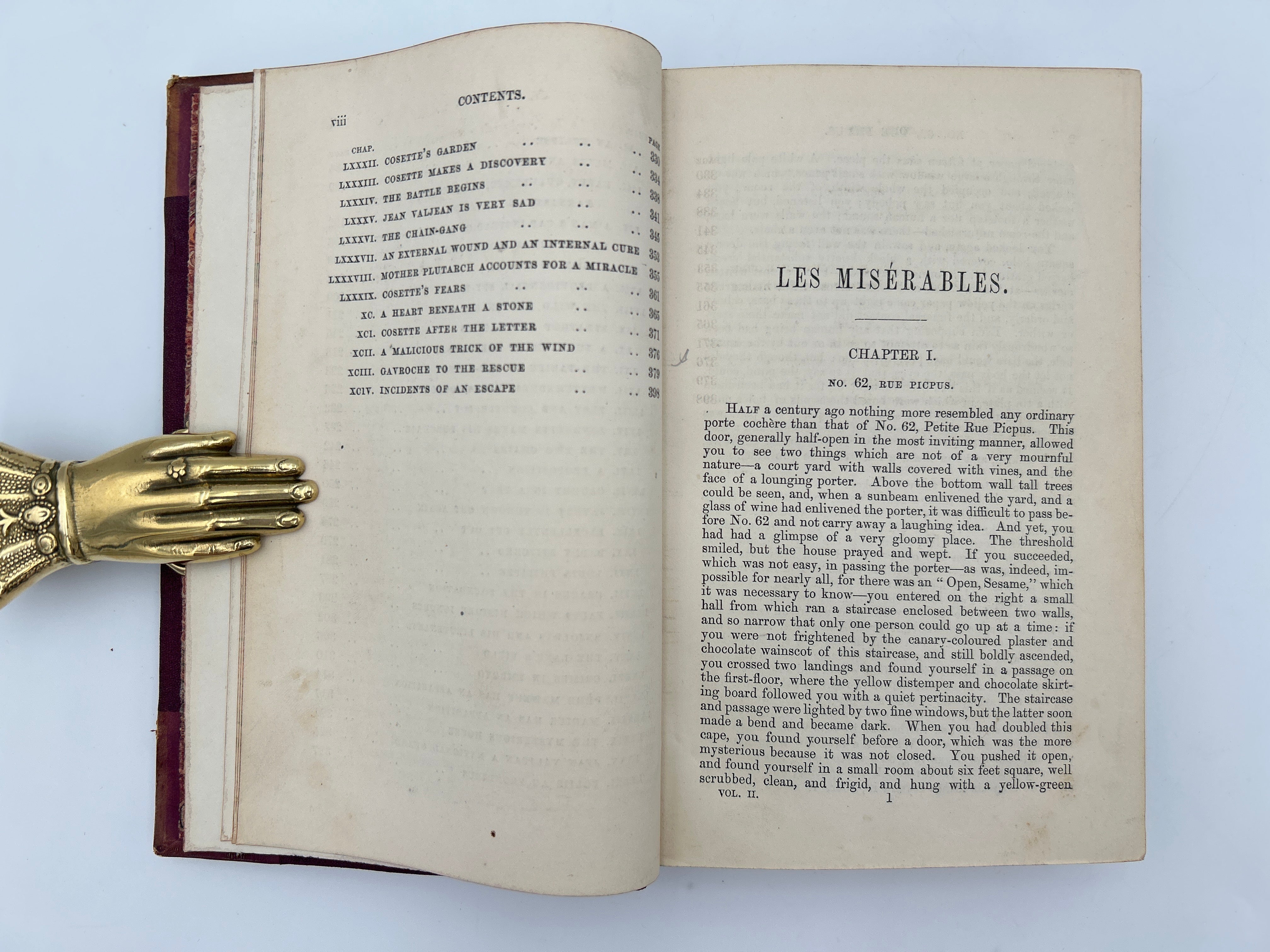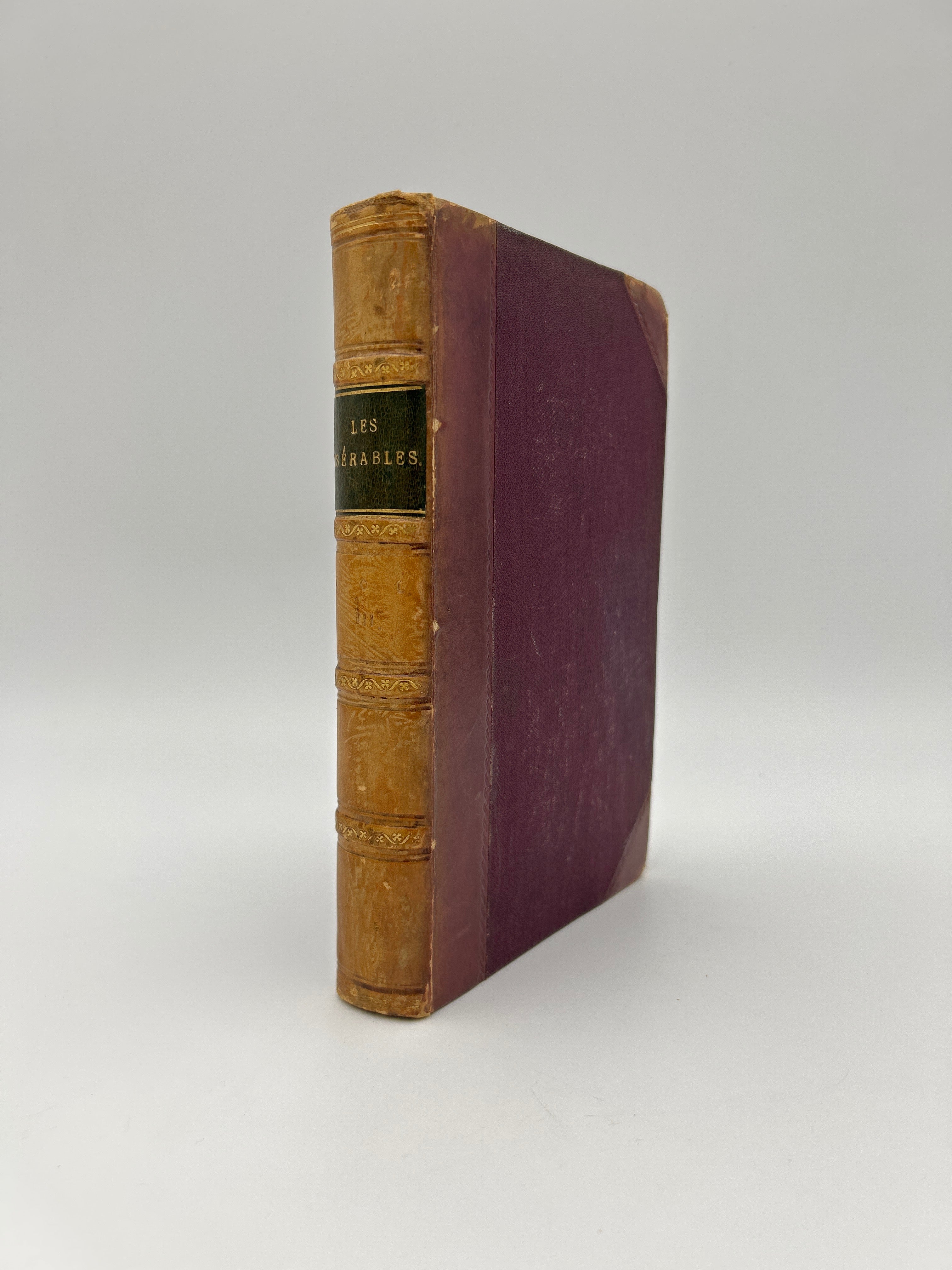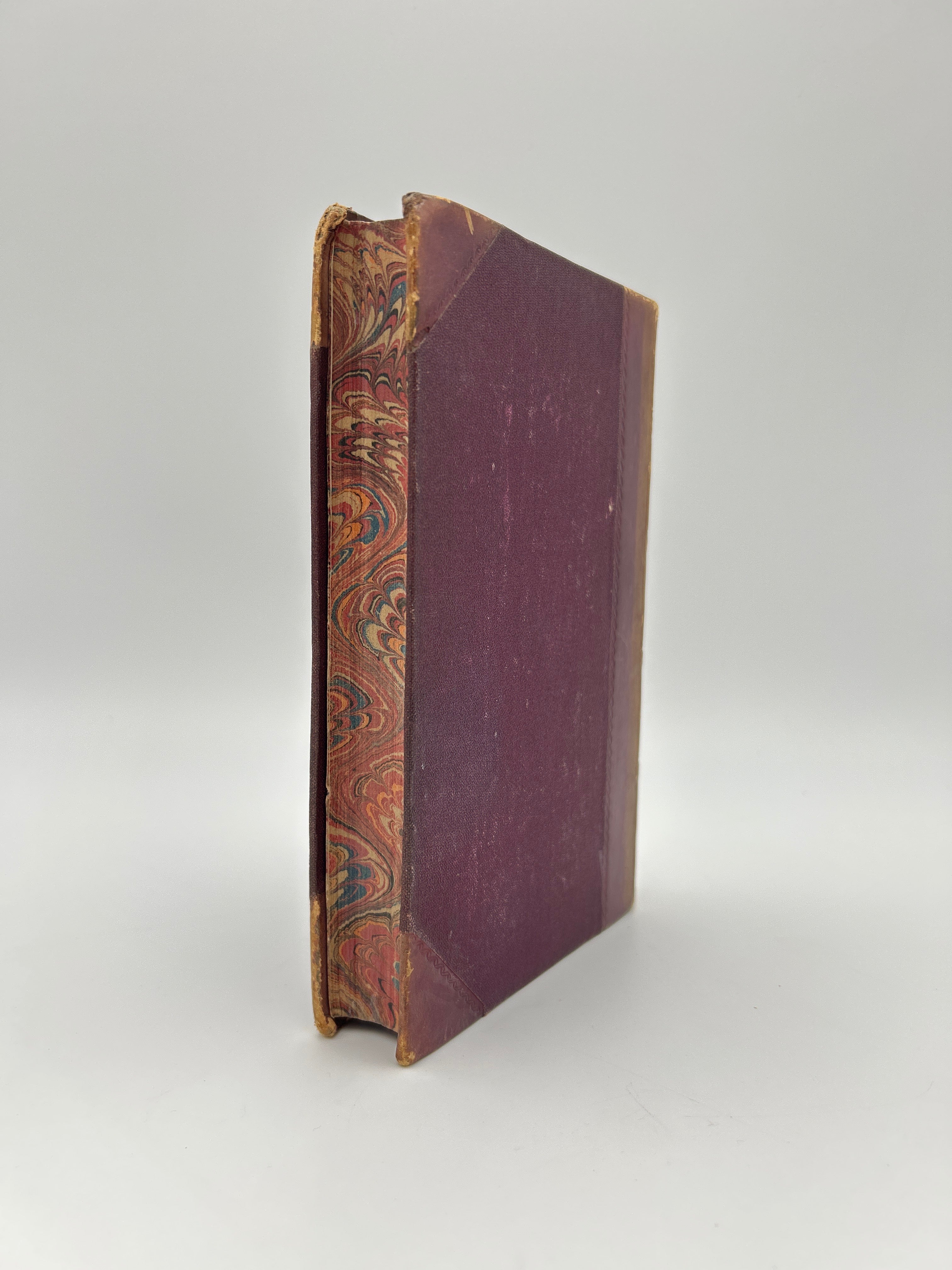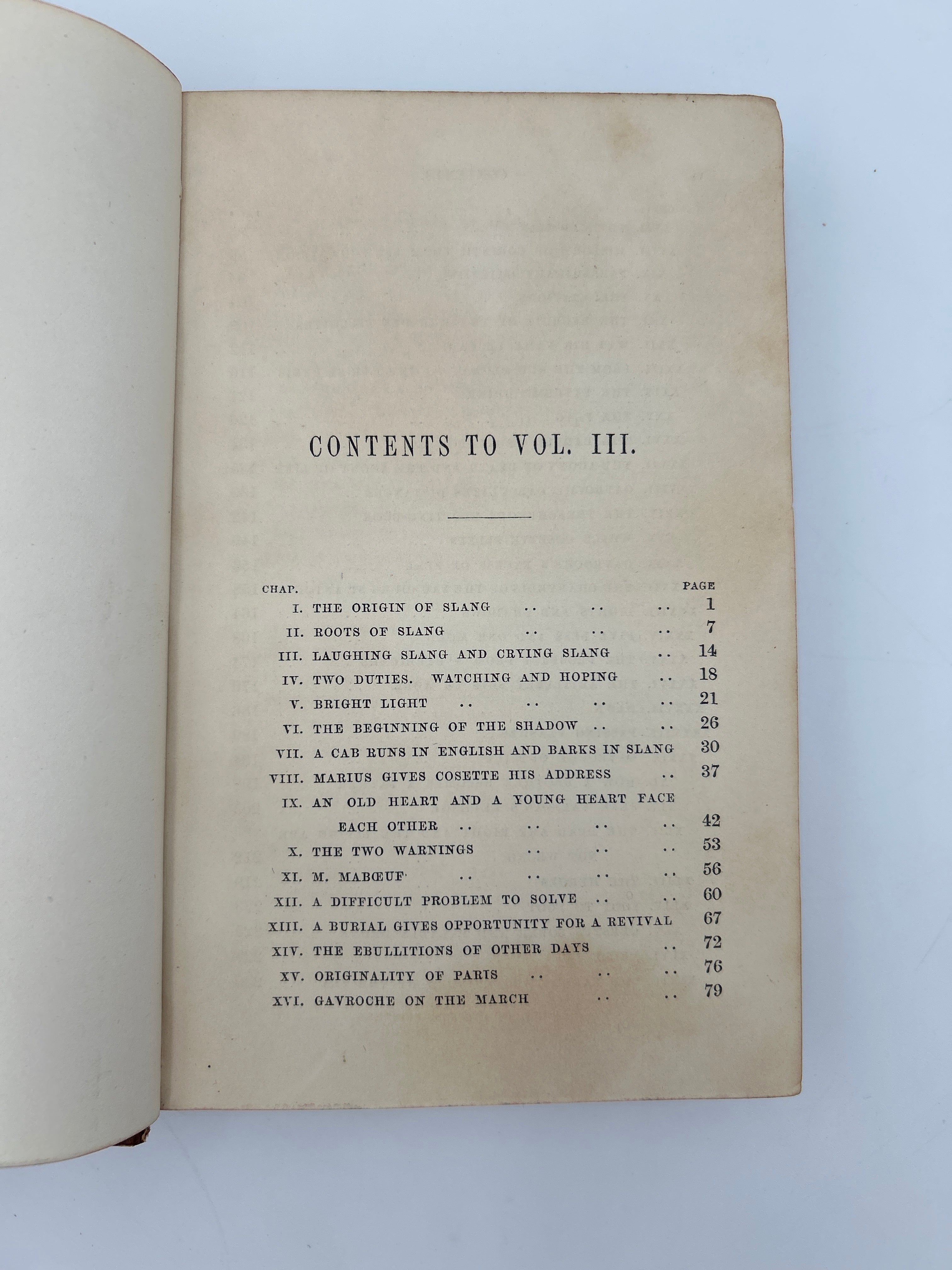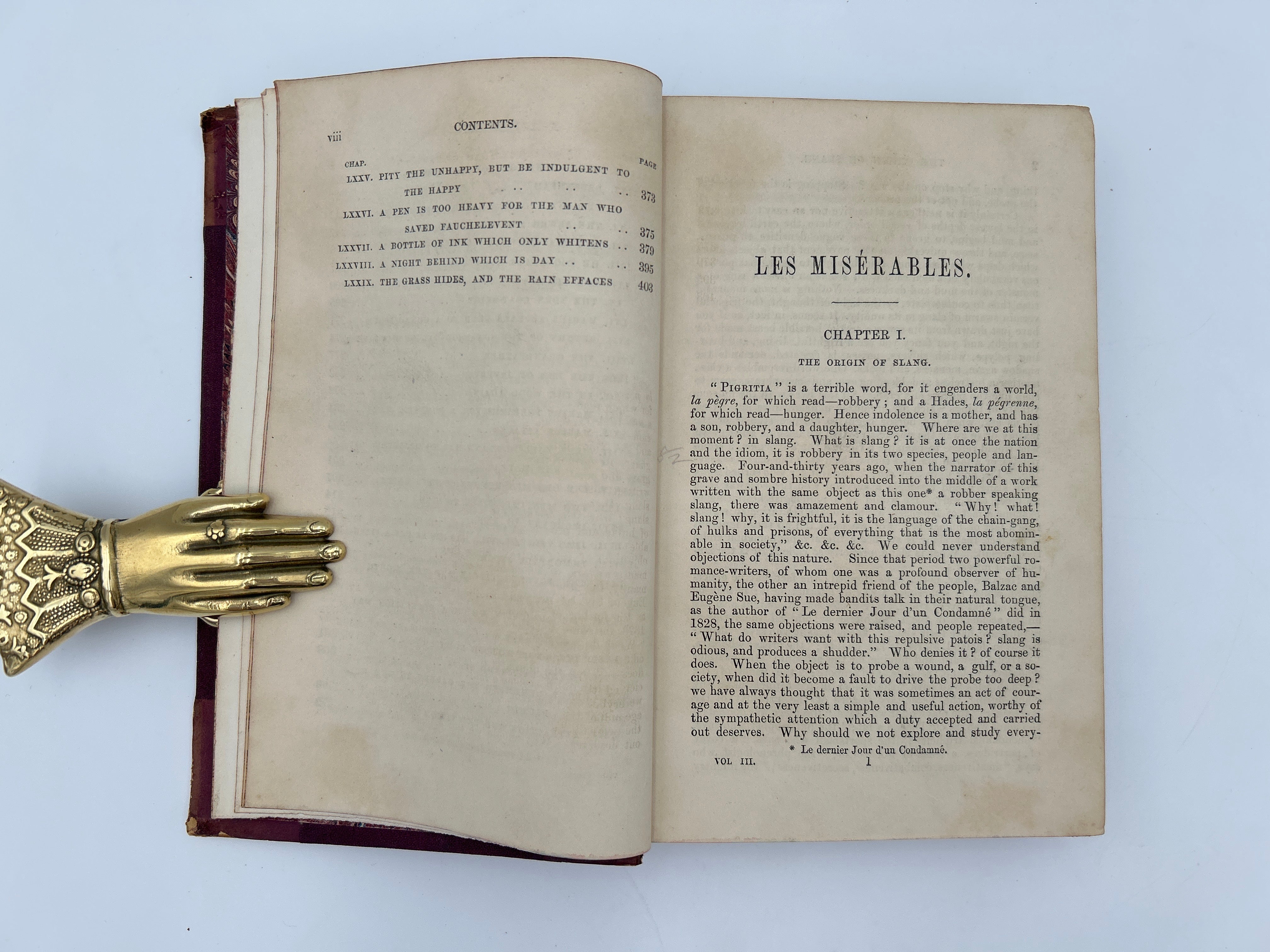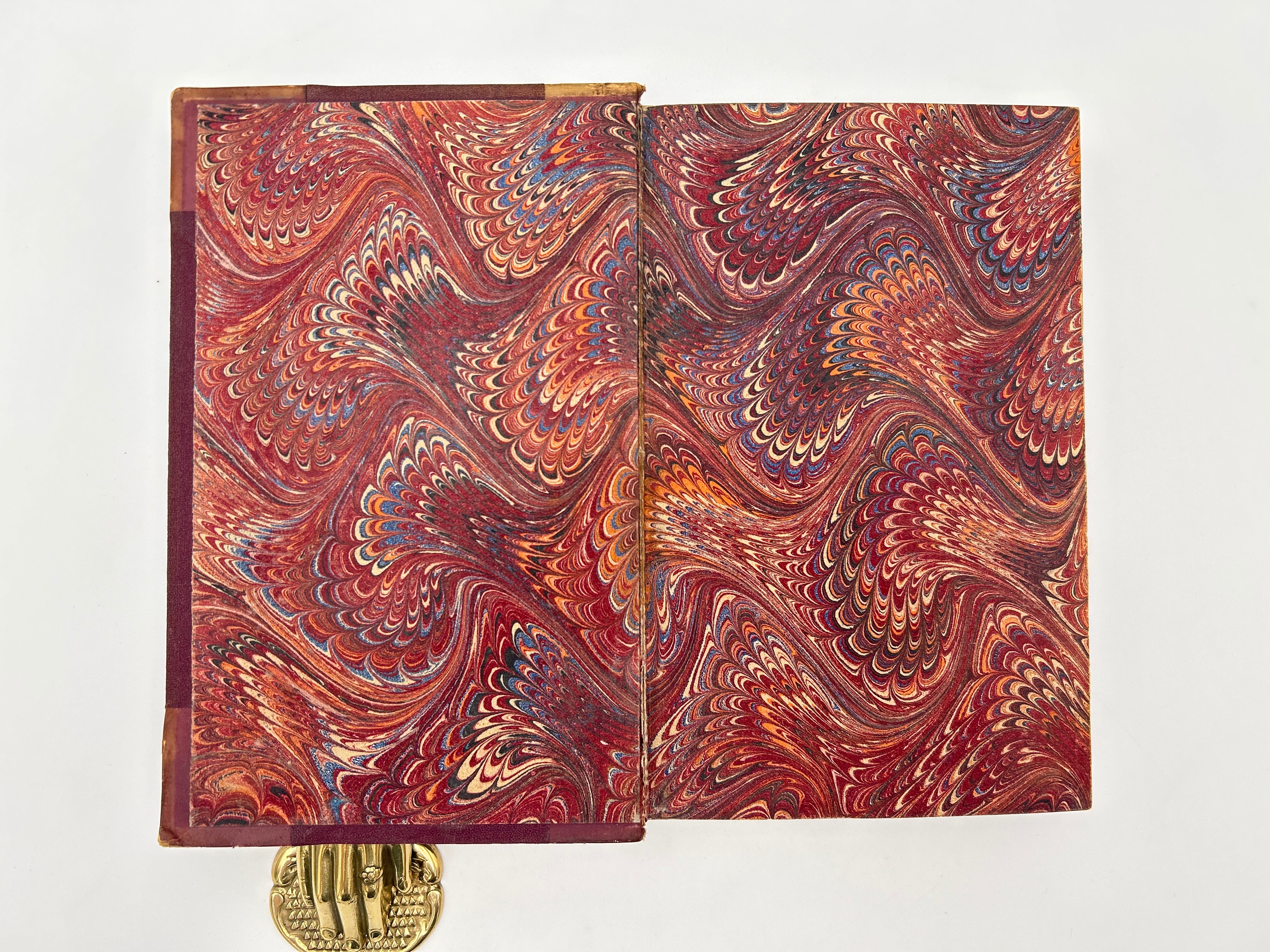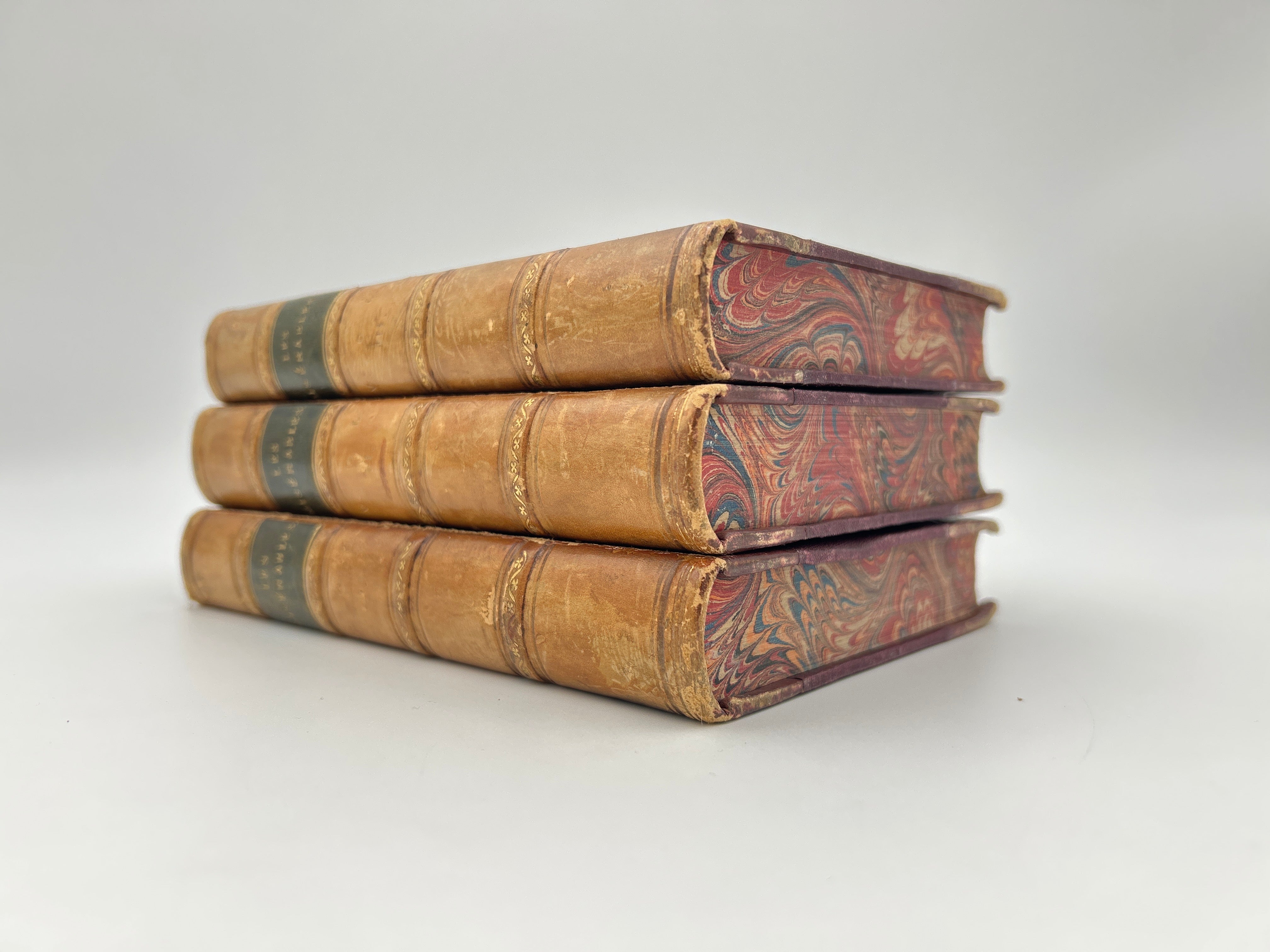Les Miserables
Couldn't load pickup availability
5RR Victor Hugo, London 1852. Authorized English Translation by Lascelles Wraxall.
Notes
Victor Hugo's Les Misérables was deeply inspired by his concern for social justice, particularly regarding the plight of the poor and disenfranchised in 19th-century France. Hugo was moved by the political and economic inequalities of the time, especially the aftermath of the French Revolution and the rise of industrial capitalism. His own experiences, including his exile after opposing Napoleon III’s regime, also shaped the themes of the novel. Les Misérables addresses the failures of society and the law, with characters who embody the struggle for redemption, humanity, and love in the face of hardship.
Hugo wrote the novel over a period of 17 years, from 1845 to 1862, with meticulous attention to both historical detail and the emotional depth of his characters. He used the story as a platform to critique social conditions, focusing on the corrupt justice system, poverty, and the institution of the monarchy. The book is not just a narrative but a reflection on morality, human rights, and the capacity for compassion and change. Its historical significance lies in its role as a social and political commentary, influencing public opinion about poverty, the rights of the individual, and the need for societal reform. The novel’s sweeping scope, emotional resonance, and historical context have made it one of the most enduring works in world literature.
Victor Hugo’s Les Misérables, in the authorized English translation by Lascelles Wraxall, is a significant rendering of the French novel into English, first published in the late 19th century. Wraxall's translation aims to capture the grandeur and complexity of Hugo's original work while making it accessible to English-speaking audiences. Les Misérables explores themes of justice, love, sacrifice, and social inequality, following characters like Jean Valjean, Fantine, Javert, and Cosette in post-revolutionary France.
Wraxall’s version is known for its faithful representation of Hugo’s narrative depth, though, like many translations of the time, it can be somewhat formal or archaic in language. The translation helped solidify Les Misérables as a literary classic in the English-speaking world, introducing its poignant social commentary on poverty, law, and redemption to a broader audience.
Description
Pebbled leather boards with leather spine and corners. Four raised bands with gilt lettering on a black label in the second compartment. Marbled edges and endpapers on all three volumes. Minimal wear to the hinges of the spine and bumping to the leather corners. Minor work done to preserve the upper spine of volume one. Interiors in pristine condition. Fine condition.
